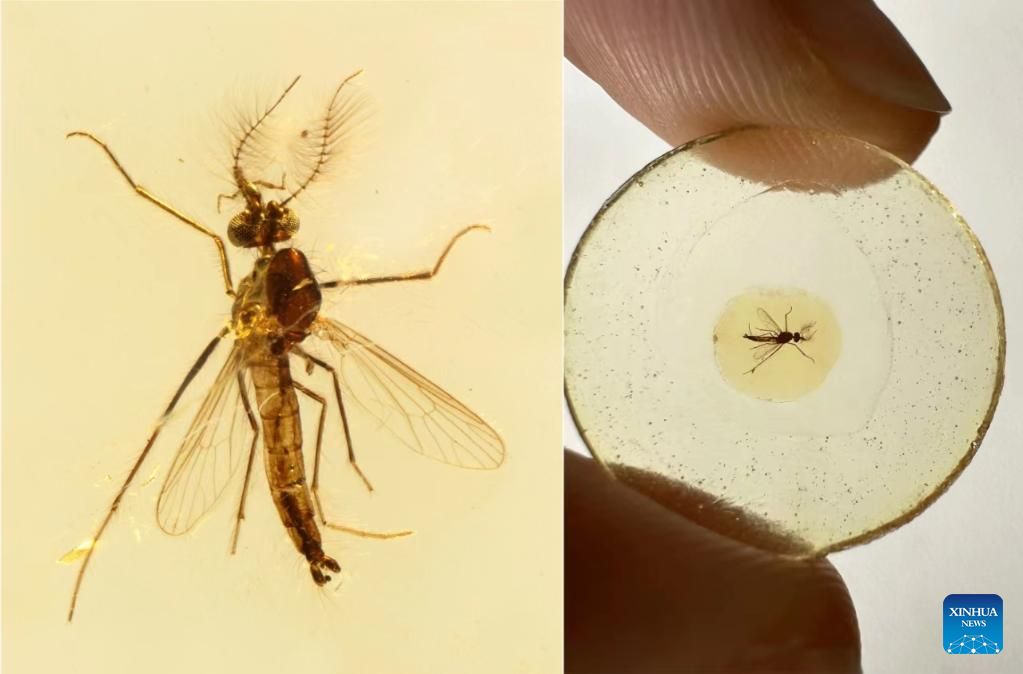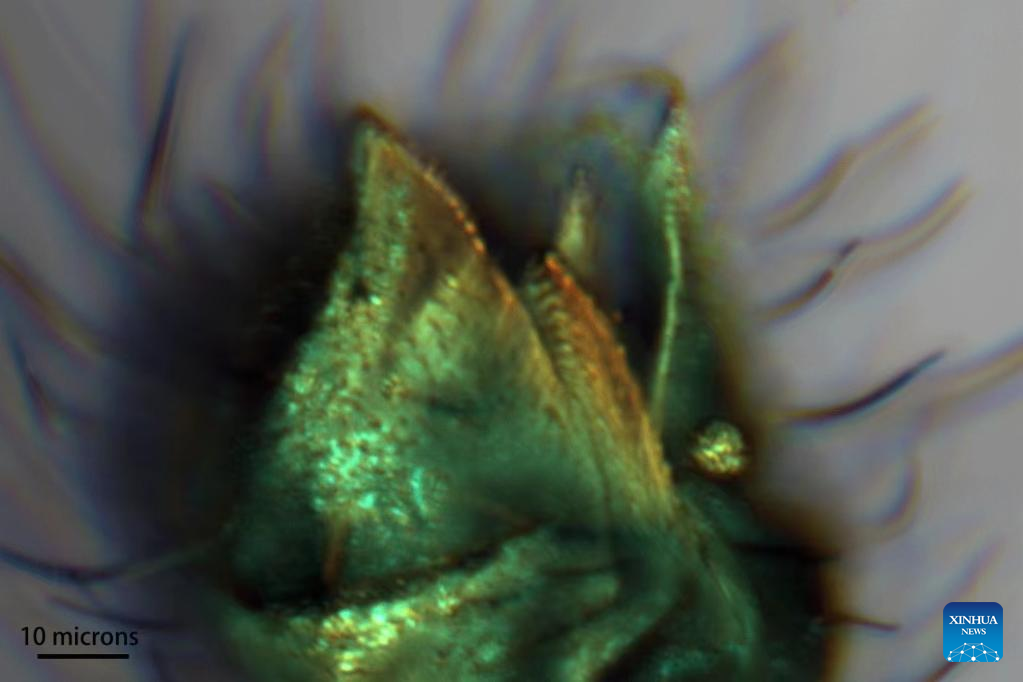Welcome!
China Arab States Technology Transfer Center
Fossil suggests ancient male mosquitoes likely suck blood: scientists
2023-12-03Hits:2958Source:Xinhua
Fossil suggests ancient male mosquitoes likely suck blood: scientists
Source: Xinhua Editor: huaxia

This undated combination photo provided by the Nanjing Institute of Geology and Paleontology under the Chinese Academy of Sciences shows the fossil sample of an ancient male mosquito (L) and the amber flake that encapsulates the mosquito. (Xinhua)
NANJING, Dec. 5 (Xinhua) -- An international team of scientists said a fossil dating back to about 130 million years ago suggests male mosquitoes likely sucked blood in ancient times.
Among modern-day mosquitoes, only females are hematophagous, meaning that they use piercing mouth parts to feed on the blood of humans and other animals. Scientists believe that insect hematophagy evolved from piercing-sucking mouthparts used to extract plant fluids but have difficulty studying this evolution due to the lack of insect fossil records.
The scientists from China, Lebanon, France and the United States found in a Lower Cretaceous amber from Lebanon that the piercing mouthparts of two well-preserved male mosquitoes included an exceptionally sharp, triangular mandible and elongated structure with small, toothlike denticles, which suggested that they were then fed on blood.
The new findings, published online in the journal Current Biology, may provide new evidence for the study of the evolution of mosquitoes, according to the scientists.
"Lebanese amber is to date the oldest amber with intensive biological inclusions, and it is a very important material as its formation is contemporaneous with the appearance and beginning of radiation of flowering plants, with all that follows of co-evolution between pollinators and flowering plants," said Dany Azar, from Nanjing Institute of Geology and Paleontology under the Chinese Academy of Sciences, and the Lebanese University, who led the research.
The new findings extended the definitive occurrence of the mosquito family of insects into the early Cretaceous, and with blood-sucking male mosquitoes, suggested that the evolution of hematophagy was more complicated than suspected.
According to André Nel of the National Museum of Natural History of Paris, the scientists are going to study the "utility" of having hematophagy in ancient male mosquitoes and why they later stopped sucking blood. ■

This undated photo, captured with a laser scanning confocal microscope and provided by the Nanjing Institute of Geology and Paleontology under the Chinese Academy of Sciences, shows the piercing mouth part of a male mosquito. (Xinhua)
